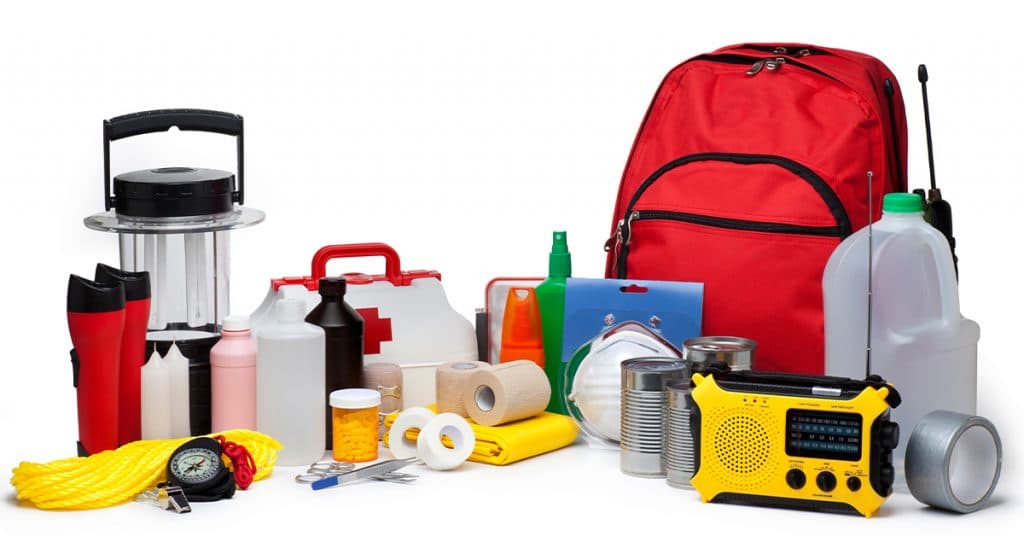
Accidents, the weather, and storms can all disrupt the electricity that we are so used to having. Electrical emergencies rarely happen, but when they do, one of the first things that you should do is to call your utility company to report the problem.
Most power outages are short-lived, but some can last longer. So, what should you do if there is a power outage? To make sure that your family is prepared, here are some tips from NEC Co-op Energy.
Plan ahead when the skies are clear. FEMA recommends that you should have 3 to 5 days’ worth of food, water, and essential supplies.
- Keep a flashlight, candles, and matches in a place that you can easily find, especially in the dark.
- You should keep at least a gallon of water for each person in the household. This is very important because if it’s raining or the temperature is very cold, you’ll most likely be stuck indoors. Also, if you lose power when there’s a boil water advisory, you will not be able to boil water without fire.
- Keeping batteries handy will ensure that you don’t completely lose access to your electric devices. Flashlights and weather radios use batteries, and they will prove to be very essential during an outage.
- Stock up on non-perishable food. You will lose access to a running refrigerator during an outage, so this is a must. Items like ready-to-eat canned goods, canned fruit, or granola are good items to keep handy.
- Assemble a family first aid kit. Accidents happen, even during a power outage. Having a well-stocked kit is important for every home. Preparedness means that you have the right supplies, such as:
- Sterile dressings/ gauze pads
- Antibiotic ointmentAntiseptic wipes/antiseptic solution
- Heat/cold packs
- Thermometer
- Pain relievers
- Hand sanitizers
- TweezersPetroleum jelly/other lubricant
- Hydrogen peroxide
- Make sure that you have enough pain relievers, hydrocortisone cream, anti-diarrhea medication, calamine lotion, aspirin, and cough and cold medications.
Having a first aid kit is a good idea, even if you do have power!
Prepare now by doing the following:
- Take a careful inventory of the items you need – those that rely on electricity, and those that don’t.
- Sign up for warning systems and local alerts.
- Have carbon monoxide detectors installed (with battery backup) in your home.
- Talk to your medical provider to get specific guidelines for medications that are critical for life. Ask how long medication can be stored at higher temperatures as well.
- Have a food thermometer handy so that you are aware of the temperature of the food when the power is restored. If the temperature is 40° or higher, food may be safely refrozen.
Knowing what you should do if there’s a power outage will help your family better prepare for other kinds of emergencies. Keep this useful guide from your Electricity company in Texas, NEC Co-op Energy in a handy spot!
Sources:
“Emergency Food and Water Supplies,” Texas A&M Agrilife Extension Disaster Education Network, https://texashelp.tamu.edu/browse/disaster-preparedness-information/emergency-food-and-water-supplies/
“Make a First Aid Kit,” American Red Cross, https://www.redcross.org/get-help/how-to-prepare-for-emergencies/types-of-emergencies/power-outage.html
“Frozen Food and Power Outages: When to Save It and When to Throw It Out,” FoodSafety.Gov, https://www.foodsafety.gov/food-safety-charts/food-safety-during-power-outage

